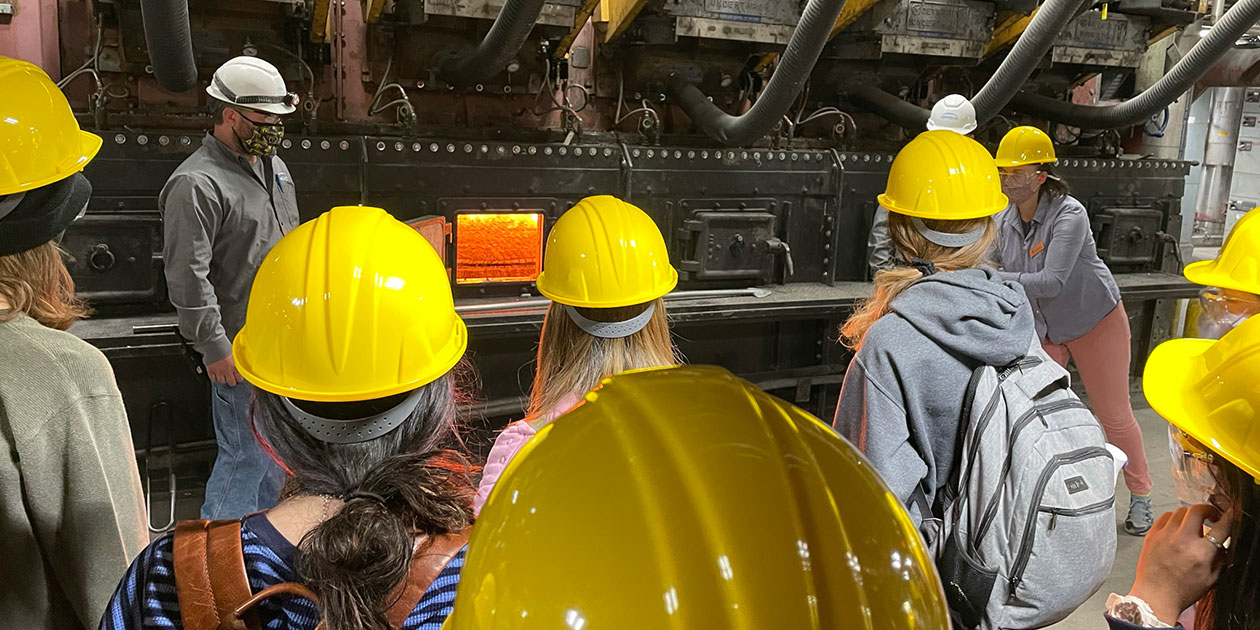Sustainability Class Gets an Intro to Green Research at Iowa
 PHOTO: ADAM SKIBBE
Students tour the UI power plant.
PHOTO: ADAM SKIBBE
Students tour the UI power plant.
COURSE TITLE
Solving the Grand Challenges of Sustainability
INSTRUCTORS
Adam Skibbe (02BA), senior GIS administrator for Geographical and Sustainability Sciences, and Stratis Giannakouros, director of the Office of Sustainability and the Environment
WHO TAKES IT
In this first-year seminar, honors students explore opportunities to get involved with research and learn how University of Iowa scientists are working together to solve some of the most complex sustainability challenges of our time.
WHAT THEY LEARN
How can we provide 10 billion people worldwide with access to clean drinking water? Can we grow 50% more food by 2050 without sacrificing the planet's last remaining wild spaces? At a large public research university like Iowa, scientists are asking these and many other questions crucial to humanity's future.
This UI course is designed to build students' confidence in engaging with researchers from various fields and tackling issues related to the stewardship of Earth's natural resources. "You can't solve any of these grand challenges siloed in your own field," says Giannakouros. "You have to think across disciplines."
HOW THEY LEARN
The class visits campus laboratories where sustainability research takes place, including the Center for Emerging Infectious Diseases and the Center for Health Effects of Environmental Contamination. One popular stop is the UI power plant, where students see boilers run with renewable resources such as oat hulls and miscanthus grass—an innovation expected to help the university reach its nation-leading goal of cutting its overall greenhouse gas emissions in half by 2030. At the end of the semester, students share their own research ideas at an honors symposium.
THE GOAL
"This course is a nice springboard to get students into research right away," says Skibbe, a former first-generation college student whose formative experiences at Iowa led him to a career in science. "I hope we can demystify the process and make research more accessible. We encourage our students to take advantage of the many opportunities here at Iowa to work with faculty on these issues."
